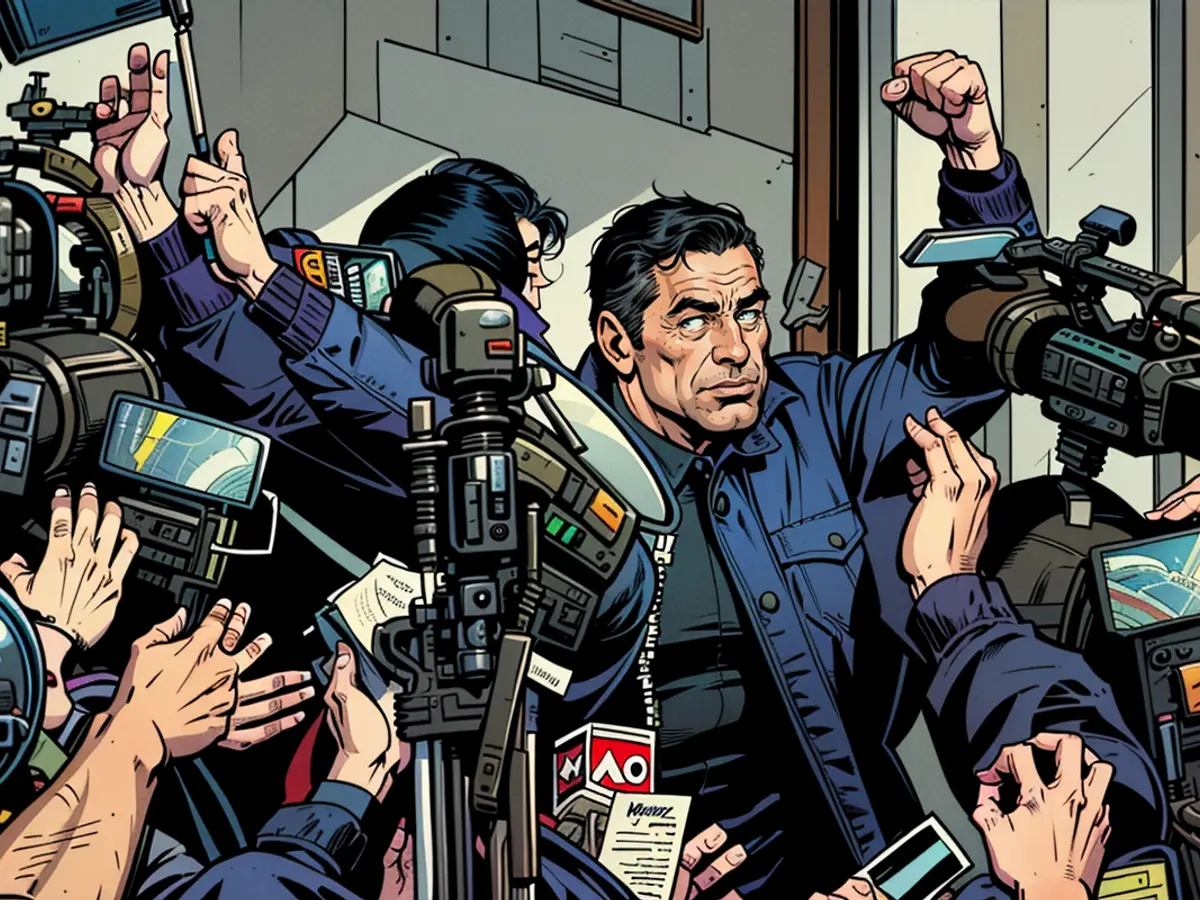National crisis - Coup attempt in Bolivia thwarted for the time being
Soldiers storm the central square of La Paz, armored vehicles ram the gates of the Government Palace: Bolivia is on the brink of a constitutional crisis for several hours, but then the leader of the putschists is arrested - the troops withdraw.
According to local media reports, General Juan José Zúñiga Macías, the army chief, was arrested in La Paz on Wednesday. The Public Prosecutor's Office launched investigations against the officer and his accomplices. Zúñiga will be accused of terrorism and armed insurrection against the security and sovereignty of the state.
The putsch attempt takes place in a economically tense time in the country, which, according to the Federal Development Ministry's assessment, is one of the structurally weakest in Latin America. Bolivia has around 12 million inhabitants and is approximately three times the size of Germany.
The entire leadership of the armed forces was replaced
President Luis Arce and the renegade general were facing each other on the grounds of the Quemado Palace just before. "Withdraw all soldiers. That's an order," the President called out. "Won't you obey me?"
Shortly after the exchange of blows, Arce dismissed the army chief from his position and replaced the entire leadership of the armed forces. The new chiefs of the military branches ordered the troops to withdraw from the city center of the government seat La Paz. "I thank the Bolivian people," Arce said from the balcony of the Government Palace.
Before that, soldiers under Zúñiga's command had taken over the central square of La Paz and rammed the gates of the Government Palace with a tank, as shown on Bolivian television. "We condemn the irregular mobilizations of certain units of the Bolivian Army. Democracy must be respected," Bolivia's President Luis Arce wrote on the news platform X. "We cannot allow coup attempts."
Apparently, the coup attempt was aimed at a new presidential candidacy of the former president Evo Morales (2006-2019). The leftist president had resigned under pressure from the military in 2019 due to allegations of electoral fraud by the opposition and international election observers.
Ex-President Morales and President Arce are fighting for power
After a series of court rulings, the first indigenous president of the country is supposed to be barred from running for another term. Morales intends to run for president in the upcoming election. Currently, Morales and the incumbent President Arce are fighting for the leadership role in their party MAS.
"We are convinced that democracy is the only way to resolve differences and that institutions and the rule of law must be respected," Morales wrote on X. "We reaffirm our demand that all involved in this crime be arrested and brought before the court."
In a statement to the media, Zuníga hinted that the coup was coordinated with President Arce. "The president told me that the situation is very bad. It is necessary to prepare something to boost his popularity," said General Zuníga before his arrest on television. "I asked him, 'Should we bring out the tanks?' and he answered, 'Do it'."
Past with many military coups
Countries in Latin America have experienced many attempted coups or military takeovers in the past. Above all, in the 1970s and 1980s, many countries in the region were ruled by military juntas. In Argentina, Chile, and Brazil, tens of thousands of people fell victim to their rule of terror.
The United Nations expressed concern over the events in Bolivia. "We call on the Bolivian society, including the armed forces, to act responsibly and uphold democratic values," read a statement from the UN.
European Commission President Ursula von der Leyen sharply criticized the coup attempt in Bolivia. "I condemn in the strongest terms the attempts to overthrow the democratically elected government of Bolivia," wrote von der Leyen on the platform X. The European Union stands with democracies.
Several Latin American presidents also rejected the military's advance. "We condemn any form of coup in Bolivia and reaffirm our commitment to the people and democracy in our brother country," said Brazil's President Luiz Inácio Lula da Silva. Chile's President Gabriel Boric wrote on the news platform X: "We cannot tolerate any violation of the constitutional order in Bolivia or elsewhere."
- The attempted coup in Bolivia, led by General Juan José Zúñiga, posed a serious threat to the country's democracy.
- The vehicle used by the soldiers to ram the gates of the Government Palace was an armored vehicle, symbolizing the force behind the coup attempt.
- The attempted coup occurred during a national crisis, causing widespread concern throughout Latin America.
- President Luis Arce, facing the renegade general Zúñiga, emphasized the importance of respecting democracy and upholding the rule of law.
- The coup attempt was linked to the political ambitions of former president Evo Morales, who aimed to run for office again despite being barred by court rulings.
- The armed forces, under Zúñiga's command, took control of La Paz's central square and the Government Palace, causing mass panic and uncertainty.
- After Zúñiga's arrest, President Arce dismissed the general and replaced the entire leadership of the armed forces, aiming to restore stability in the country.
- The European Union, along with various Latin American presidents, strongly condemned the coup attempt and advocated for the preservation of democratic values in Bolivia.
- Countries in Latin America, including Bolivia, have a history of military coups and authoritarian rule, often resulting in human rights violations and political repression.
- Germany, like other European nations, expressed concern over the events in Bolivia and called for a peaceful resolution to the ongoing crisis, preserving the country's democratic institutions and rule of law.








